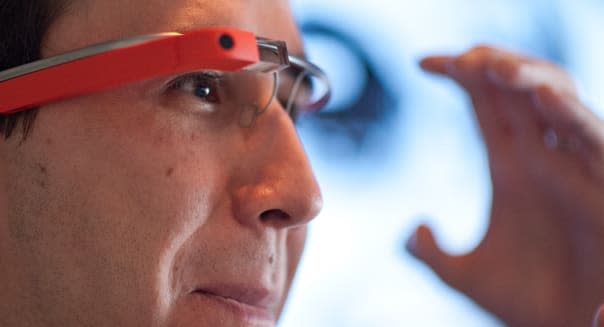Is Google Glass Worth $1,500 - or $79.78?

Google Glass glasses may look goofy. They open up a can of privacy concern worms. And the $1,500 price tag is enough to make even most early adopters wince. However, Google's (GOOG) first major foray into wearable computing can't be considered a failure just yet.
But what if Google were exposed for being a greedy gouger? What if a Google Glass isn't worth anything close to the price that the world's leading search engine and online advertising platform provider is charging?
Google easily sold out of its Google Glass inventory in a single day in April, but the shocking truth about the cost of its components may make the next sale a little trickier.
Tearing Down Glass Houses
TechInsights recently completed a teardown of Google Glass, in which a product is disassembled, and each component is assessed a value. Teardowns are popular with tech buffs just to see what's inside the guts of consumer electronics. TechInsights estimates that all of the parts making up Google Glass -- including the eventual assembly and test procedures -- set Google back a mere $79.78. A spokesman for Google called the estimate "absolutely wrong" and declined further comment.
No one was expecting Big G to be selling Google Glass at a loss. That's just bad business. Companies need to operate profitably, and research and development costs should be recouped.
Outside of video game consoles and some of Amazon.com's (AMZN) Kindle products, most products hit the market at markups. And the only reason why gaming console makers and Amazon have sold products at or below costs in the past is because they expect to make that back -- and then some -- in the future through their vibrant ecosystems. Video game system makers get paid by software developers for every game that's eventually sold, and Amazon hopes Kindle buyers spend enough money buying digital books, music, videos, and games to make the gamble pay off over time.
Google wants folks online to consume its growing array of ads, but that's not enough to take a big hit on hardware.
Google Glass Isn't Just for Rich Nerds
Don't let the backlash against Google Glass owners -- or even the tone of this article -- blur the benefits of the specs, which can project computing images so only the wearer can see them. It's not just for rich nerds. For every tech blogger getting dirty looks upon entering a theater or walking down the street for fears that the five-megapixel camera is rolling, plenty of people are putting Google Glass to extraordinary uses.
Early responders are using Google Glass to beam images to nearby hospitals so they can get up to speed on the injuries of arriving patients. Fitness junkies are using Google Glass to navigate running and cycling paths without missing a beat. Google Glass apps add gaming elements to workouts, encouraging more active lifestyles. A surgeon is using it to call up a patient's X-ray during a procedure so there's no need to look away from the operating table. The New York Police Department and U.S. Air Force are testing them to see if they enhance their operations.
%VIRTUAL-article-sponsoredlinks%All of these benefits will make Google Glass a big winner down the line, but it will have to come at a lower price. For now, it may not matter. On April 15, it sold out of one of one of the five frames available within hours, and by the end of the day all of the Google Glass Explorer slots were filled up. The one-day sale was the first time that Google made the specs available since offering select developers and tastemakers the glasses as beta testers a year ago.
The reviews have been mixed, but it's a safe bet that published perspectives will improve -- and wider adoption will continue -- once Google does the right thing and prices them at a more reasonable markup to its actual cost.
Big markups are Apple's (AAPL) thing, and Google is trying hard to set itself out as the platform for the masses. Google got in early on the wearable computing revolution, but it can't let greed lead to it falling behind.
Motley Fool contributor Rick Munarriz has no position in any stocks mentioned. The Motley Fool recommends Amazon.com, Apple and Google (C shares). The Motley Fool owns shares of Amazon.com, Apple and Google (C shares).

